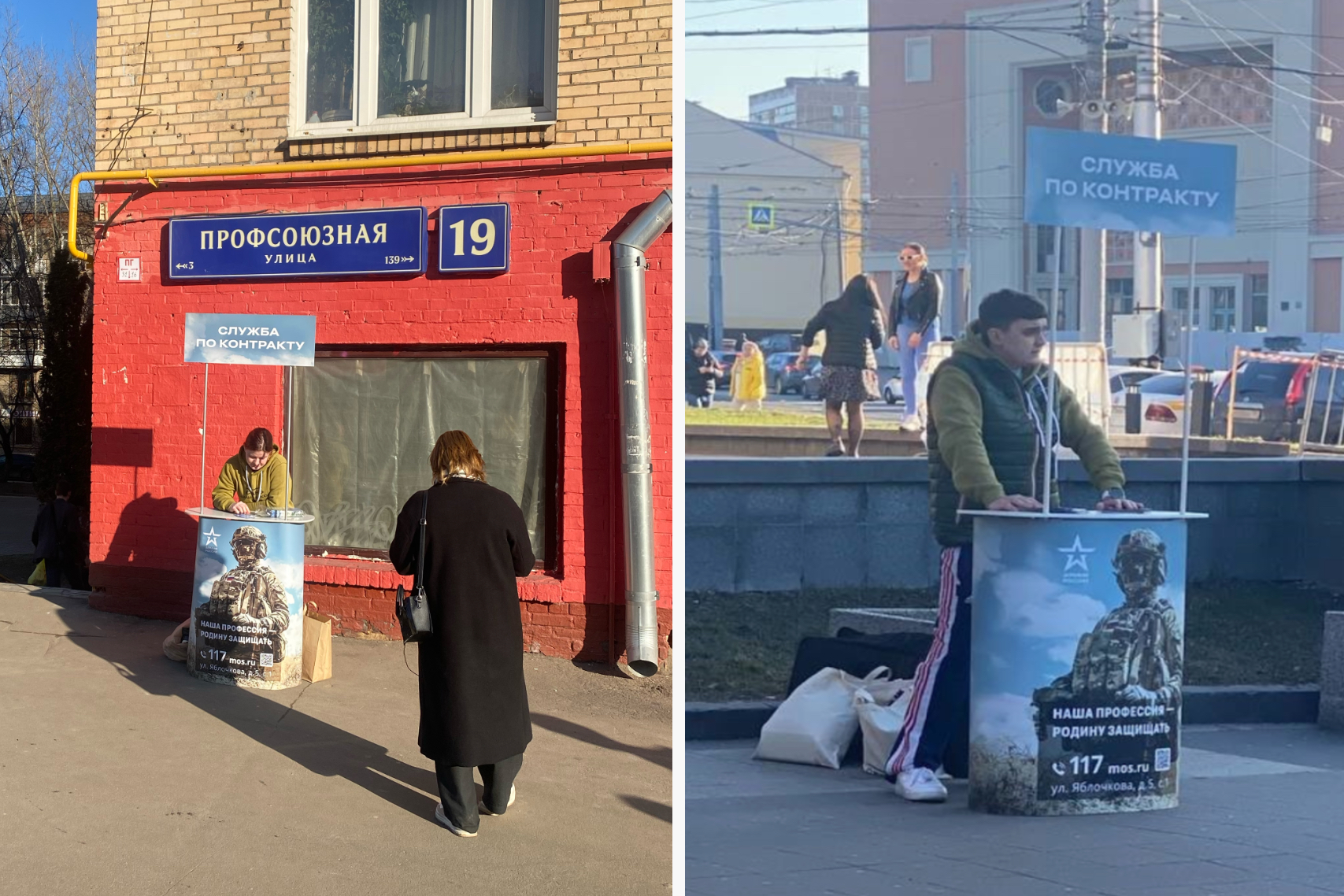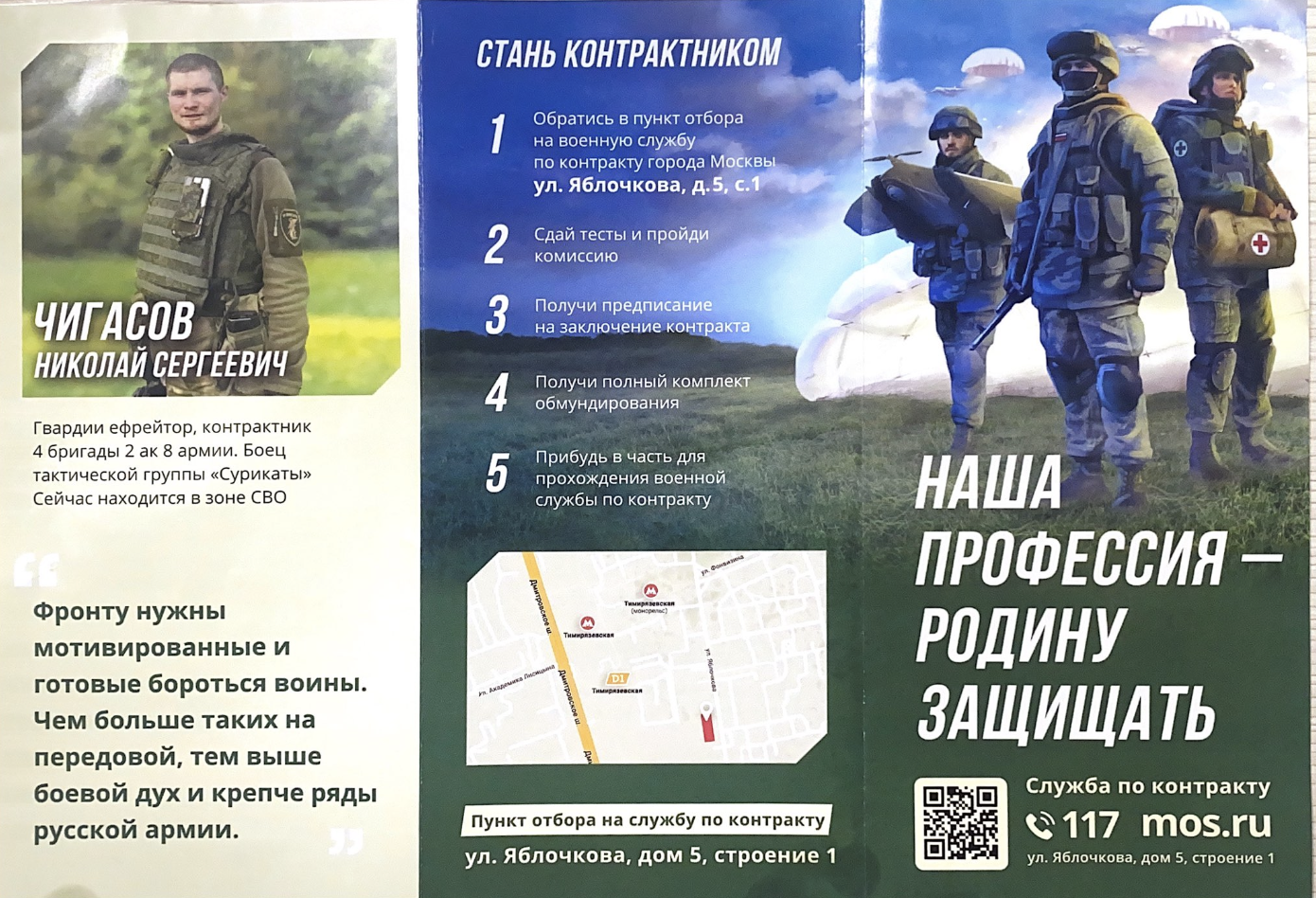Now you can get to the war in Ukraine literally at the exit of the Moscow metro. Campaign points, more like booths selling illegal SIM cards, have appeared at at least five stations. The system is designed to simplify the process of recruiting contract soldiers and sending them to the combat zone as much as possible. The people on duty at the counters call themselves volunteers of the selection service, they are engaged in informing and handing out leaflets describing the benefits of contract service.
“Campaign stands were placed near the metro, as the mos.ru website has too little and not very clear information that needs to be found,” the volunteers said. Campaigning near the metro will make it possible to reach Muscovites who do not visit the mayor's office website and government resources.

Volunteers also collect phone numbers from those who want to sign up for contract service for transfer to a collection point on Yablochkova Street, which has recently opened. Then the potential military is called back and sent to this center. Submission of an application, medical examination and paperwork is carried out in the same place. And so that potential soldiers do not change their minds in the process, you can play, for example, Atomic Heart – four PlayStation 5 consoles were installed at the checkpoint.
According to the volunteers, they do not receive bonuses for the collected numbers of candidates. “Especially many girls come up and are interested, I did not expect,” one of the volunteers shared with The Insider.
Campaigning at such points is very similar to the election campaign – here, too, there are invitingly bright leaflets and no real alternative is offered. The leaflets talk about the benefits of contract service. On the cover of the booklet is a group of three military men: a soldier with a weapon, a medic, a drone operator holding a small drone similar to the Iranian Shahed or, as it is called in Russia, Geranium.

“The front needs motivated and ready to fight soldiers. The more such people are on the front lines, the higher the morale and the stronger the ranks of the Russian army,” the leaflet says.
The authorities decided to motivate the warriors with the promise of money. Before being sent “to the NVO zone”, a soldier is entitled to 90-100 thousand rubles. This amount includes a payment by decree of the mayor of Moscow, which means that a Russian from another region is likely to receive 50,000 rubles less. After being sent directly to the combat zone, the military is promised 210-340 thousand rubles per calendar month. The amount includes a monetary allowance in the amount of 40-50 thousand rubles, additional payments of 120-240 thousand rubles, and for Muscovites – all the same monthly 50 thousand "mayor's" rubles, which non-Muscovites can hardly count on.
Payments, however, can be illusory: on the same page, a footnote says: "the amount of payments may vary depending on the duration of the contract, the territory of service, changes in federal and regional regulations." Nothing is said about the likely prospects of death or injury – as well as about the losses of the Russian army, which during the year of the war in Ukraine exceeded the losses in Afghanistan for 9 years.


